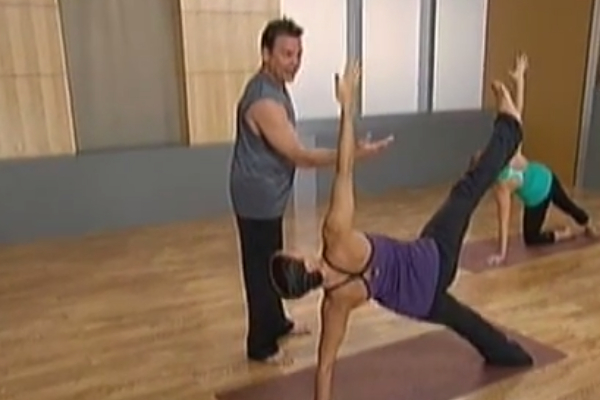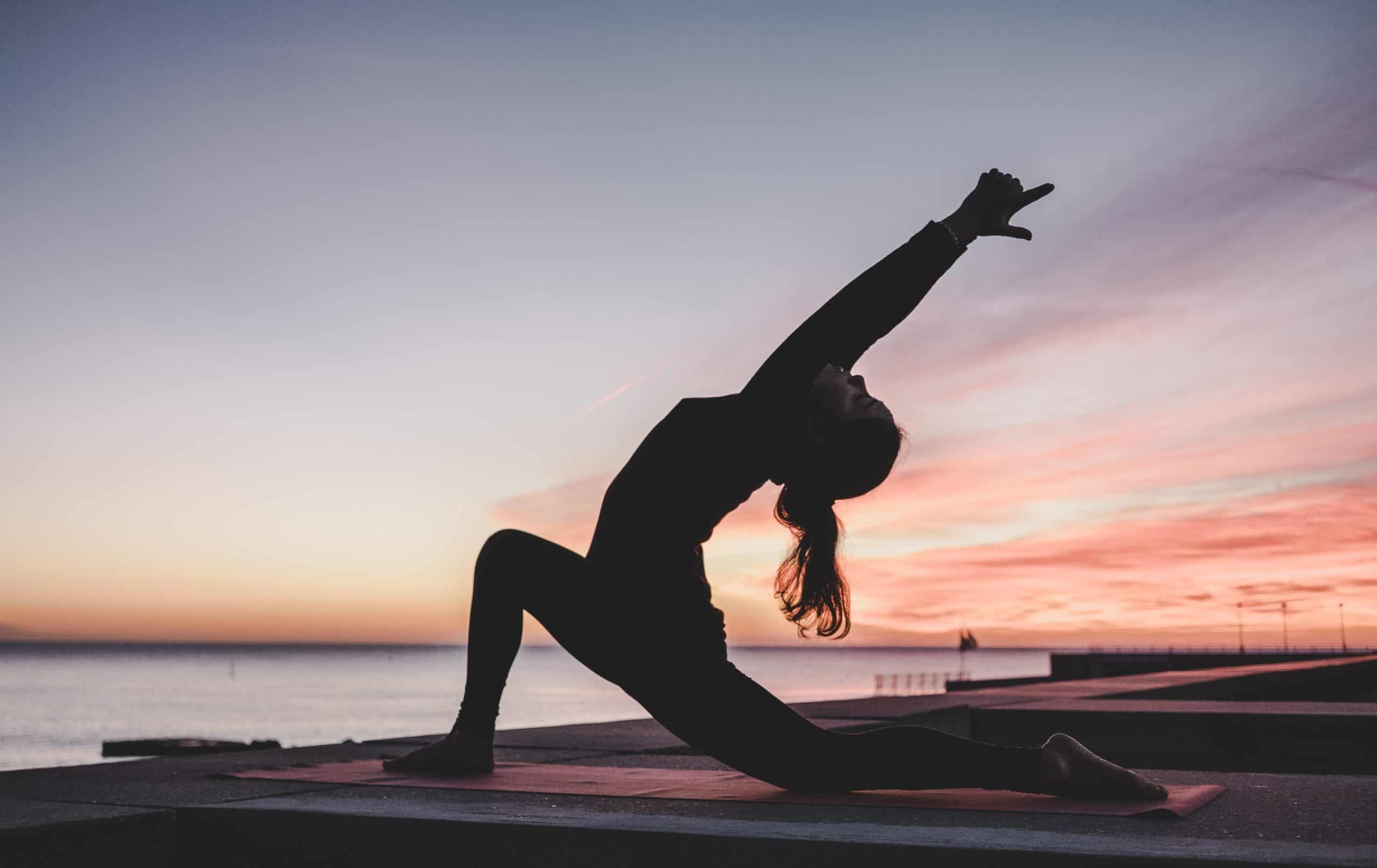
Yoga and meditation have many benefits, including increased flexibility and lowered stress levels. These practices also support cardiovascular health and lower blood pressure and sugar levels. Not to mention, they improve the working environment as well. Let's explore these benefits in more detail. Not to mention the many benefits of meditation and yoga. We all want to feel better. How can these practices be beneficial to your life and health?
Improved flexibility
Yoga and meditation go hand-in-hand. Yoga is a form meditation that helps you tune in to your body's signals. This improves flexibility. Although many people are familiar with the health benefits of yoga and meditation, very few studies have been done to compare the two. However, there are some studies that support both. Here are three ways that yoga can increase your flexibility
Actively engaging muscles improves flexibility. For flexibility to be improved, the body needs active muscle engagement. Yoga postures can increase flexibility. Your flexibility directly correlates to your flexibility. Yoga improves flexibility and increases joint range of motion. It helps you perform deeper asanas by strengthening your back. You can relax and unwind by incorporating meditation while you stretch.

Better mental focus
Research has shown that meditation and yoga can improve concentration and mental focus in older adults. An experiment by UC Davis found that regular meditation and yoga practice led to improved brain function over three-month periods. This could have important implications for treating depression and cardiovascular disease. However, research is needed before meditation and yoga can be widely embraced. Research suggests that yoga and meditation can have more benefits for the developing brain than most experts think.
Meditation and yoga can increase self-awareness which can lead to greater self-compassion. It can also help people release negative emotions. One study revealed that yoga practice for 10 mins a day helped anxious individuals focus better and regulate their emotions. Yoga may be a good option for people with ADHD to incorporate into their daily lives to improve their mental focus. Studies have shown that these exercises can increase energy levels and produce endorphins.
Improved immune system
A study published in the Proceedings of the National Academy of Sciences shows that those who meditate or practice yoga show increased activity in immune-related pathways. It also indicates that meditation may be an effective way to boost the immune system. Researchers from the University of Florida looked at the blood of 106 individuals who had attended an intensive wellbeing retreat. The results of these exercises revealed that participants had more CD-4 cells. These cells manage the immune system. These cells transmit signals to other cells in order to fight infections. Patients who meditated and practiced yoga had higher levels T-Cells. Breast cancer patients and those with colitis had higher levels interleukin-10.
University of Florida researchers did a similar research and enrolled 106 participants to an intensive Samyama meditation retreat. The researchers monitored eight days of sleep and diet patterns to determine if any changes occurred. The results of this study were then compared against the controls. The results showed that meditation had a significant effect on the immune system activity, and also decreased stress levels. Meditation also increased immune-system activity. The researchers even triggered two hundred twenty genes that are involved in the immune system.

Improved workplace environment
This study revealed that meditation and Yoga had significant effects on reducing aggression at work. Employees who practiced Yoga were less likely to be distracted and had a positive attitude towards work. Participants who practiced yoga reported lower levels of anxiety and better moods. Using these techniques in the workplace may be beneficial in combating the harmful effects of toxic work environments that lead to the exodus of key talent.
Yoga and meditation both help individuals improve their mental focus, reduce stress levels, and increase their concentration. This allows employees to make better decisions, improve focus and be more productive. Meditation can help employees understand their roles better and improve their relationships with others. Employers can promote yoga and meditation in the workplace to increase self-awareness, and job satisfaction. They can also improve their co-worker relationships, as well as the workplace environment.
FAQ
What happens if you do yoga every day?
It makes you feel calm, relaxed, and centered. It helps to improve your posture, balance, and flexibility.
You will become more aware and conscious of your body, how it feels when moving. This awareness can make you more aware and conscious about yourself.
Yoga improves concentration.
Your mind will be sharper and clearer. It calms your nervous systems. It lowers stress levels. And it gives you a sense of peace and well-being.
How long does yoga take?
Yoga is a skill that requires you to train your mind. After you learn the basic poses, you'll be ready to start practicing yoga at home.
Before you start your class, warm up for about 20-30 minutes. Then spend 5-10 minutes warming up your body by performing simple stretches. Start to move into more challenging positions.
Once you have mastered the basics you can move on into intermediate classes. Here you'll learn advanced moves. For example, if you're learning yoga for the first time, you might start with standing poses like the Tree (Vrksasana) and Mountain (Tadasana).
What are the top types of yoga mats for you?
There are many different types of yoga rugs available. You can choose one based upon its price, size, and durability.
A high quality mat will not only protect your floor from scratches but also be thin enough to allow you to move quickly.
You may find that a cheap mat does not provide enough support.
What are the benefits of yoga for beginners?
Yoga helps improve posture, flexibility, strength and breathing control. It also allows you to relax and has a positive effect on your mental clarity. You will also be more aware and connected to the world around you, your fellow humans, and yourself.
Yoga teaches you how to live life fully. You are taught to listen to your mind and body. You are able to accept yourself exactly as you are. And you learn to let go of stress and tension.
You can relax and enjoy the journey of life.
Statistics
- The people in the yoga group were 37 percent more likely to have quit smoking by the end of the 8-week program. (nccih.nih.gov)
- Gentle yoga has been shown to ease some of the discomforts of tender, swollen joints for people with arthritis, according to a Johns Hopkins review of 11 recent studies. (hopkinsmedicine.org)
- In comparison, a 125-pound person is estimated to burn 135 calories in 30 minutes of walking (at a pace of 15-minute miles) and 210 calories bicycling at a moderate pace on a stationary bike. (everydayhealth.com)
- About one in seven U.S. adults practiced yoga in the past 12 months, according to a 2017 national survey. (nccih.nih.gov)
- Lock in 25% off your Founding Member rate. (corepoweryoga.com)
External Links
How To
Yoga can help menopause symptoms
Yoga is an ancient practice that originated in India and focuses on stretching, breathing, and meditation. It has been used to stay fit for thousands upon thousands of years. It has gained popularity as people search for alternatives to staying healthy and active in stressful situations.
Yoga is about using physical positions (asanas), to strengthen muscles, improve posture, and increase flexibility. This can help relieve tension, increase strength, and endurance.
There are many types of yoga: Hatha, Vinyasa flow and Bikram. Each type focuses only on certain aspects of your body, like breathing, stretching, and relaxation.
All forms and types of yoga seek to attain balance within the body, mind and spirit. Yoga has many benefits, including improved fitness, weight loss, improved sleep quality, energy levels, and reduced stress.
Numerous studies have shown that yoga is beneficial for conditions like anxiety, depression, or insomnia. However, there is little conclusive evidence of its effectiveness for other health issues such as menopausal symptoms.
As well as helping you feel healthier and happier, yoga teaches you how to relax and manage stressful situations - skills that could be helpful when dealing with menopause.
It is important to note that yoga can cause muscle soreness after exercise, so starting at a low-intensity level is wise. Before you start yoga, talk to your doctor about any concerns you may have.